| 7-1. | Clinical studies |
| ● | Double-blind placebo controlled randomized trial |
| ● | Age 21 - 50, Type II diabetic patients (taking medicines) |
| ● | Active-control 21 subjects (resistant dextrin) |
| collagen peptide 39 subjects | |
| ● | 10 g/day, 12 weeks |
| ● | Evaluation : Fasting blood glucose, HbA1c, Insulin resistance, QOL score |
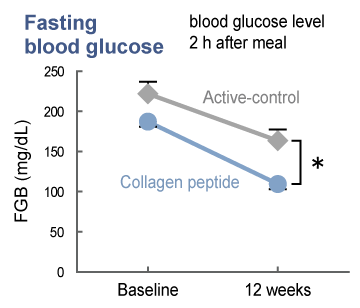
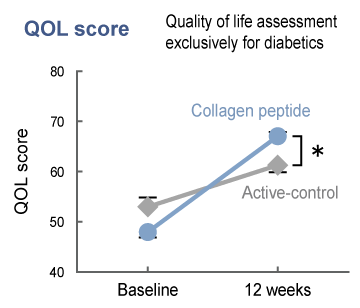
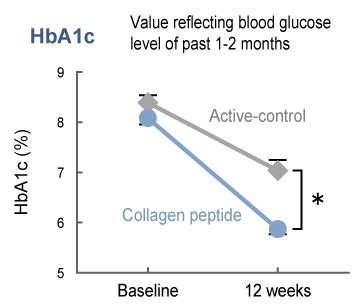
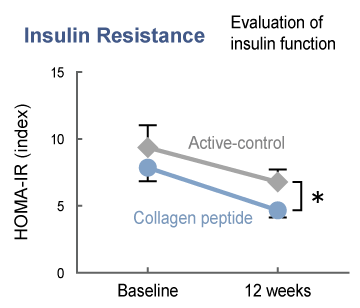
Mean±SE, *p<0.05 (vs Active control)
Ingestion of collagen peptide at 10 g/day for 12 weeks significantly reduced fasting blood glucose, HbA1c, insulin resistance and QOL score compared with resistant dextrin.
Reference:Sheena et al., J Clin Nutr Food Sci, 1(1): 006-011. 2018
| 7-2. | Mechanism |
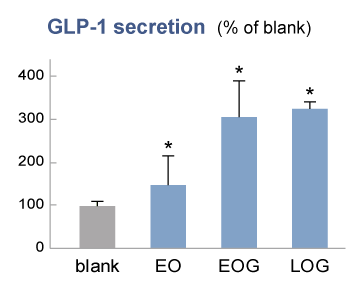
Using human enteroendocrine NCI-H716 cell, tested by ELISA, final concentration 5 mM, Mean ±SD,*p<0.05 (vs blank)
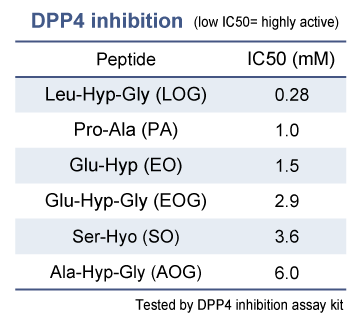
GLP-1 secreted by L cells in the upper small intestine is a hormone called incretin, which acts on the pancreas to promote insulin secretion. On the other hand, DPP4 enzyme, present on the cell surface, inactivates GLP-1 and suppresses insulin secretion. It has been reported that in type II diabetic patients, the activity of DPP4 becomes high, making it difficult to lower blood glucose levels.
Therefore, by inhibiting DPP4, the action of GLP-1 can be enhanced, resulting in the suppression of hyperglycemia.

Collagen peptides are thought to suppress the rise in blood glucose levels by inhibiting DPP4 and promoting GLP-1 secretion.
Reference: Iba et al., J Med Food.,19:9_2016






